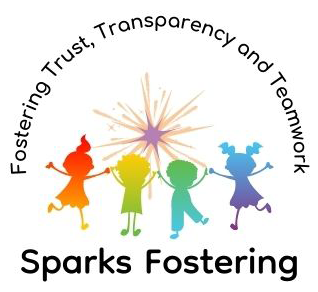Panel membership
Panels are multi-disciplinary teams with relevant experience; panel members include health professionals, education staff, current or previous foster carers, care experienced young people or adults, social care professionals, elected council members, or faith/community leaders.
Panel members read and review fostering assessments (and other documents as required) and contribute to discussion regarding the strengths and vulnerabilities identified in the documents. Fostering assessments are lengthy and detailed, so good literacy and analytic skills are required.
Panel members must also be able to give feedback about the quality of the reports produced and other aspects of the service provided by Sparks Fostering.

Members Of The ‘Central List’
- A person to chair the panel, who must be independent of Sparks Fostering. A person is not independent of Sparks Fostering if they are currently approved by Sparks Fostering as a foster parent, or if they are currently employed by Sparks Fostering. The panel chair ensures that written minutes of panel meetings are accurate and clearly cover the key issues and views expressed by panel members and record the reasons for its recommendation. The panel chair has a sound understanding of the fostering process; the authority and competence to chair the panel; the ability to analyse and explain complex information; the ability to identify key issues, problems and solutions; and excellent interpersonal, oral and written communication skills. The panel chair should ensure that each member of the fostering panel is able to contribute meaningfully to discussion of panel business.
- One (or two, but no more) persons who may act as chair if the person appointed to chair the panel is absent or that office is vacant (“the vice chairs”). If the vice chair isn’t independent, at least one other panel member must be independent of Sparks Fostering.
- One or more social workers who have at least three years’ relevant post-qualifying experience and are registered with the social work regulator. The relevant experience must be in childcare social work, including direct experience of fostering either within a fostering service or in placing and supervising children in foster care. The social worker has an understanding of current legislation, policy and good practice in relation to fostering matters, and to advise the panel accordingly. The social worker may be independent, or may be employed by Sparks Fostering (but is not the agency decision maker).
- In addition to the chair (or vice chair in their absence), and the social worker, there are three other members. The other members have relevant experience, such as health professionals, education staff, current or previous foster carers, care experienced young people or adults, social care professionals, elected council members, or faith/community leaders.
Fostering panels have access to medical expertise (medical advisor) and legal advice (legal advisor), as required.
As with all professionals working with foster carers, any prior knowledge of the applicants or foster carers should be disclosed to the Registered Manager, who will decide if there is a conflict of interest requiring re-allocation of the panel membership.
Sparks Fostering will attempt to have panel constitution that is gender balanced, represents the diversity of the local community and has experience of the issues being discussed.
Recruitment To The Central List
Sparks Fostering is required (by legislation) to maintain a list of persons who are considered to be suitable members of the Sparks fostering panel (“the central list”).
The number, skills, knowledge and experience of persons on the central list are sufficient to enable Sparks Fostering to constitute panels that are equipped to make competent recommendations to Sparks Fostering, taking into account the nature of the children and carers that Sparks Fostering caters for (as outlined on the Statement of Purpose).
All people working in or for Sparks Fostering, including the central list of persons considered suitable to be members of the fostering panel, are interviewed as part of the selection process and have references checked to assess suitability before taking on responsibilities. Telephone enquiries are made to each referee to verify the written references.
Preparation for the role
All panel members are expected to read the panel policies and guidance on the Sparks Fostering home pages. Panel members should also review the Complaints/Allegations Policy; the Equality and Diversity Policy; and Record Keeping and Confidentiality.
Panel members also have access to the ‘Core Information’ pages, which they may wish to review when specialist subjects are mentioned in the reports presented to them.
Where possible, panel members are asked to attend one Panel meeting as an observer before being added to the ‘central list’.
Panel members must also attend induction training, which they must complete within 10 weeks of being appointed to the Central List.
Panel members are also invited to monthly training workshops.
Maintenance Of The Central List
There is no minimum or maximum tenure for panel; however, membership of the central list will be periodically reviewed and refreshed in order to bring new experiences and perspective to panel meetings.
A person who is included in the central list may at any time ask to be removed from the central list by giving one month’s notice in writing. Sparks Fostering may remove panel members (when it is deemed to be necessary) by giving one months notice.

Annual appraisal
Panel member performance is appraised annually.
The agency decision-maker reviews the performance of the panel chair, and for this purpose may attend a proportion of the panel meetings, but only as an observer. Views about the chair’s performance is requested from other panel members and from those who attend panel meetings, such as prospective foster carers and social workers who present reports to the panel.
For all other panel members, the panel chair conducts the appraisal.
If it is found that a panel member is not performing to the required standard, it is discussed promptly with the panel member with the aim of addressing any development needs through advice and training. If, however, the panel member’s performance remains below the required standard and Sparks Fostering considers that they are unsuitable to remain a panel member, the panel member is given written notice of termination, with reasons for the decision.
If Sparks Fostering believes a current panel member is unsuitable or unable to continue as a panel member, the membership of the panel member may be terminated at any time with one month’s written notice.
Panel Paperwork and Confidentiality
Panel members are sent an agenda and panel paperwork at least 5 working days before the panel date.
It is expected that all panel members have read the panel paperwork before attending panel.
All information shared with panel members is confidential and must not be discussed outside the work required by Sparks Fostering.
Sparks Fostering is a paper-free organisation so all documents are stored electronically. If panel members wish to print out any documents, they must keep the paperwork in locked storage when it is not on their person. All hard copies of panel related paperwork must be shredded after the panel meeting.
Keeping panel documents (or other confidential documents) as hard copies, or copying them electronically outside Sparks Fostering software, may result in disciplinary action (including referral to the Local Authority Designated Officer).







